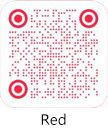
UT Utah State sales tax rates
STATEWIDE SALES TAX RATE
6.1%
ECONOMIC SALES THRESHOLD
$100,000
TRANSACTIONS THRESHOLD
200
Do you need to collect sales tax in Utah?
You’ll need to collect sales tax in Utah if you have nexus there. There are two ways that sellers can be tied to a state when it comes to nexus: physical or economic. Physical nexus means having enough tangible presence or activity in a state to merit paying sales tax in that state. Economic nexus means passing a states’ economic threshold for total revenue or the number of transactions in that state.
Do you have physical nexus in Utah?
Utah considers a seller to have physical nexus if you have any of the following in the state:
• Have or use an office, distribution house, sales house
• Warehouse, service enterprise or other place of business
• Maintain a stock of goods in Utah;
• Regularly solicit orders (whether or not those orders are accepted in Utah), unless the activity in Utah is only advertising or solicitation by direct mail, email, the Internet, telephone or similar means)
• Regularly deliver property in Utah other than by common carrier or U.S. mail; or regularly engage in any activity related to the leasing or servicing of property located in Utah
Do you have economic nexus in Utah?
Effective January 1, 2019, Utah considers vendors who make more than $100,000 in sales annually in the state or more than 200 transactions in the state in the previous or current calendar year to have economic nexus. This means the state considers these vendors obligated to collect sales tax from buyers in the state. You can read Utah’s economic nexus guidance for sellers here.
Is what you’re selling even taxable?
Certain services are taxable. For example, charges for labor to repair, renovate or clean tangible personal property are taxable. Check the Utah Department of Revenue to see if your service is taxable.
Tangible products in Utah are generally taxable. There are some exemptions. Check Utah Department of Revenue to see if your product is taxable.
Is SaaS taxable in Utah?
SaaS is taxable in Utah.
Collecting Sales Tax
Utah is an origin-based sales tax state. This means you should be charging Utah customers the sales tax rate for where your business is located. That rate could include a combination of state, county, city, and district tax rates. The state sales tax rate is 4.85%.
Should you collect sales tax on shipping charges in Utah?
If you separately state the charge for shipping on your invoice then that shipping charge is not taxable. If shipping charges are included in the cost of the item you’re selling then it is taxable.
Charges for transportation or freight billed to customers for the cost of shipping the finished product to the customer are not taxable if separately stated on the invoice. However, charges for “freight-in” are taxable. “Freight-in” is defined as shipping, freight or transportation charges billed to the seller as part of the seller’s cost of tangible personal property, product transferred electronically, or services sold. These charges are part of the purchase and sales price and are taxable.
When are Returns Due?
When you file and pay Utah sales tax depends on two things: your assigned filing frequency and your state’s due dates.
States assign you a filing frequency when you register for your sales tax permit. In most states, how often you file sales tax is based on the amount of sales tax you collect from buyers in the state.
In Utah, you will be required to file and remit sales tax either monthly, quarterly, or annually.
Utah sales tax returns are always due the last day of the month following the reporting period. If the filing due date falls on a weekend or holiday, sales tax is generally due the next business day.


 +86 13310831806
+86 13310831806



